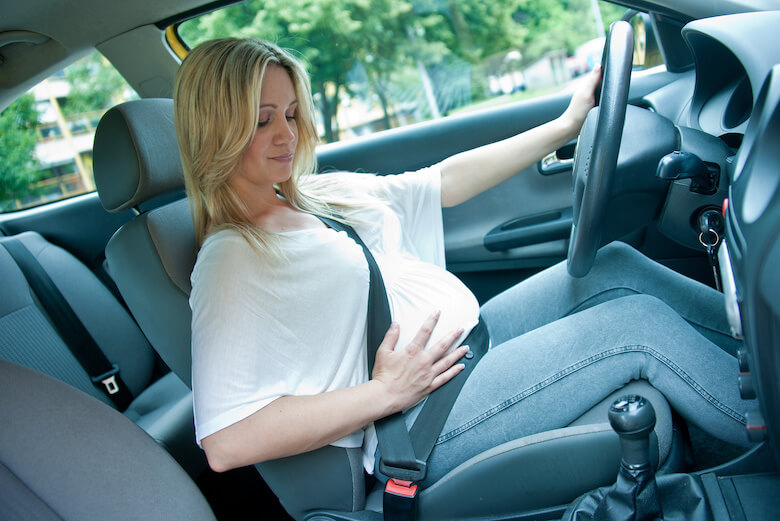Various studies in the past several years have shared different statistics on the number of motor vehicle crashes and fatalities related to pregnant women. The accurate number is hard to establish since only fatalities to fetuses over 20 weeks are legally defined and recorded. The reason for this is that 10%-20% of pregnancies result in miscarriage in the first three months.
Use eTags© to Quickly Complete Your DMV Service. Renewals, Title Transfers and More, All Online!
About 2.9% of women say they were hurt in a car accident while they were pregnant
170,000 crashes in the U.S./year involve a pregnant woman
One study that you can repeatedly see quoted online is done by the University of Michigan. The report reveals that 170,000 car crashes in the U.S. each year involve a pregnant woman. Pregnant driving can be dangerous for both the fetus or baby, and the mom to be.
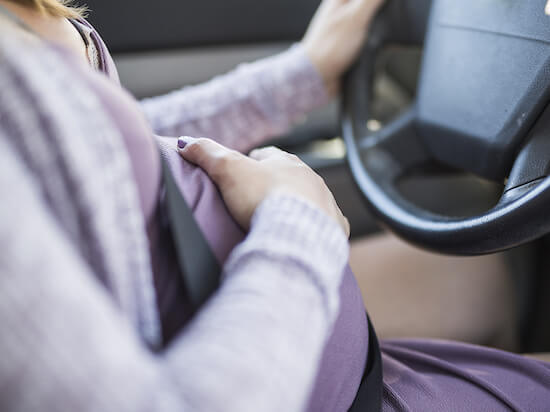
Saferide4Kids quoted a wide range in their estimates: from 300 to 5,000 fetal deaths from car crashes. The organization says a fetal injury at 16 mph frontal accident at 28 weeks of pregnancy is 26% for drivers that buckled up, while it’s 70% for those who didn’t wear their seat belts. Fetal injuries can lead to placenta abruption, uterine rupture, direct fetal injury, maternal death or fetal loss.
A 2014 study suggests 42% of women more likely to become involved in serious car accidents during their second trimester of pregnancy than those who weren’t pregnant
Pregnancy symptoms can change the way you drive
A pregnancy brings about a variety of physiological and lifestyle changes that can contribute to increased driving error. In other words, just being pregnant also has its driving safety risks even when there’s no accident.
An expecting mother is going through major changes, and as a result has to deal with a host of symptoms that can alter the way she drives. Intermittent nausea, general fatigue, unintended distraction, sleep disruption, and decrease in focus can all be a factor in driving behavior in habits, making it harder to be behind the wheel at certain times.
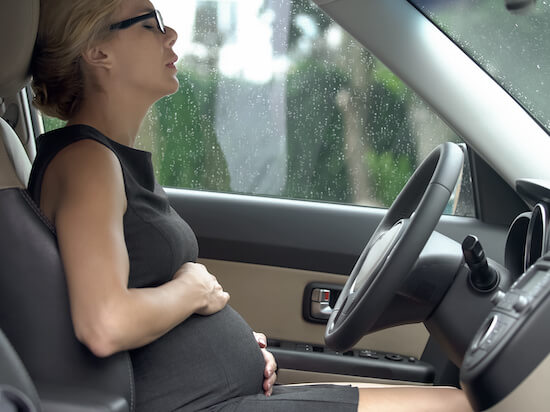
When you’re expecting, wear seat belt correctly
For a pregnant mother who drives, her seatbelt placement is crucial for better safety. Make sure your vehicle has a three-point restraint including the shoulder belt, which you should never wear under your arm of behind your back. It should fall across the center of your shoulder and chest, away from your neck.
The lap belt has to be placed low on your hips, not across your stomach. For added comfort, you can try a pregnancy seat belt positioner so that your lap belt is secured in between your legs (instead of at one side) and rests on top of your thighs, not under your stomach.
Adjust the angle of the steering wheel upward, so the bottom edge of the wheel isn’t directly parallel with your pregnant stomach
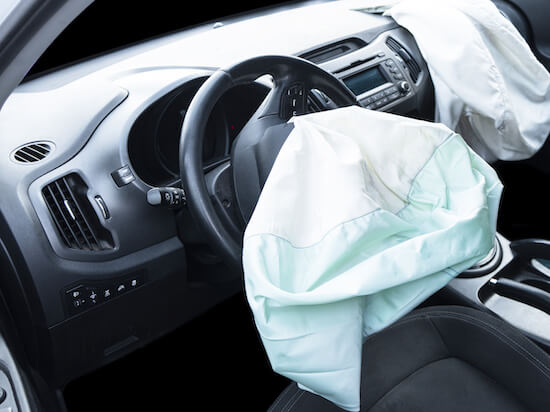
Airbags on and seat position
Airbags along with the seatbelt will further protect you while driving when you’re pregnant. So you want to make sure you sit at a safe distance from the steering wheel/dashboard. Your car seat should be positioned so that your breastbone is 10 inches away.
When driving, best to wear loose, comfortable clothing, and flat shoes if your pregnant
There’s a big difference between driving during your first trimester of pregnancy and between month four to nine, so you should keep readjusting your car seat as your tummy gets bigger. Don’t forget to readjust your side-view mirrors and other car components if you’ve made changes to your seat position.
Break time and bad conditions on the road
If you’re driving for a long time, stop somewhere safe to stretch out your legs. It’s important to get the blood flowing and reduce the risk of swelling or clots. Also, have a snack and some water to stay hydrated, alert and energized. Motor vehicle accidents account for more than half of all trauma cases during pregnancy, so be extra careful with baby on board. Try not to drive in inclement weather or when visibility is low. Keep driving distractions like your cellphone at bay, and always follow the speed limit.
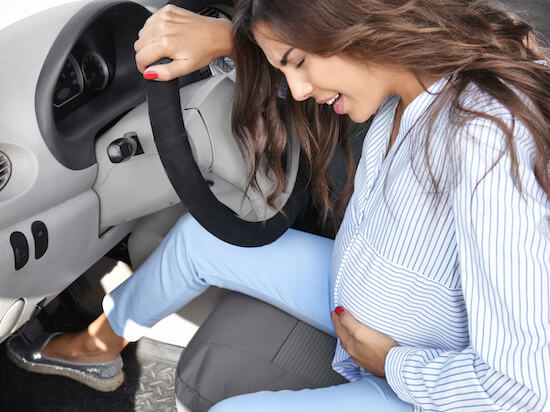
An estimated 3,000 pregnancies are lost from car crashes every year
In case of collision, head to hospital
If you’re in a car accident and pregnant, call your doctor even if you feel okay. The doctor will check your baby’s heartbeat to make sure there’s no damage from the collision. A car accident for a pregnant person can lead to placenta abruption without them even knowing, so a hospital visit for check-up is a must.
Hope you’re safe out there!
